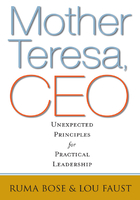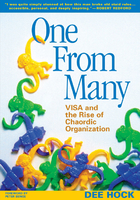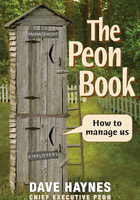Check Your Stereotypes at the Door
I read in the paper, I watched on the show
They said that it happened a long time ago
The years had gone by, I just didn't know
Working for freedom now
The songs that we sang still ring in my ears
The hope and the glory, the pain and the fears
I just can't believe it's been forty-five years
Working for freedom now
Those who have fallen and given their last
Have passed on to us what remains of their task
To fight for the future and pray for the past
Working for freedom now
The song of their laughter, the sound of their feet
The voice of their pain that cries out in our sleep
Will be judged in the end by the faith that we keep
Working for freedom now
The wind in the winter is bitter and chill
The cries of the hunted are heard on the hill
I just can't believe there's such suffering still
Working for freedom now
The wind blows the summer from fields far away
We stand in the dust in the heat of the day
Our hearts stopped so still that there's nothing to say
Working for freedom now
Been a long time, but I keep on trying
For I know where I am bound
Been a hard road, but I don't mind dying
I have seen freedom
In SNCC, we never called the great uprising of which we were a part the "Civil Rights Movement." What African Americans in the South and their allies called it was "The Freedom Movement," usually abbreviated to simply "the Movement."
A lot of songs from that period talk about "freedom." But, as far as I know, there aren't any that include the phrase "civil rights." When Black people talked about the Movement, they meant not just rights, but liberation.
The decision to use the term "civil rights" on the national scene was deliberate and strategic. It was hard for anyone to argue against the proposition that every person living in the United States should be able to enjoy the rights promised them by the Constitution. The phrase itself was dry, abstract, legalistic—not the sort of thing to keep white middle Americans awake at night.
Make no mistake: Rights, civil rights, public rights are critically important, particularly in a constitutional democracy, a society at least theoretically based on the rule of law. As public/feminist philosopher Elizabeth Minnich writes in our coauthored book, The Fox in the Henhouse: How Privatization Threatens Democracy:
People who are enslaved have no public life, no rights. They cannot go where they will, do what they will, say what they will. Because as slaves they have no public standing, they also have no private life. They have no place of their own, no doors they have a right to shut to protect their privacy. Slaves were raped and "bred" and their children taken from them. Not being public "persons," they also could not legally marry. They were vulnerable to intrusion at all times: no public life, no private life. . . . Some slave owners treated their slaves, their private property, better than others. But they did not have to. Those who have no public rights can only hope for mercy. They cannot demand justice.
The Civil Rights Movement was in part about making sure that southern African Americans could demand justice out loud, in public. It did this, though, not by creating special rights for them, but by dismantling the barriers of legal segregation, of American apartheid, that prevented Black people in the South from exercising the rights that others in this country had held for years.
But access to rights does not in and of itself create opportunity. Rather, it creates the opportunity for opportunity—for organizing that turns possibility into reality. The fact that there are today, in the South and throughout the United States, Black mayors, Black state legislators, Black members of Congress, a Black president is not because the government awarded those positions to African Americans. It's because, given opportunity by the Voting Rights Act of 1965, millions of Black southerners—even after that act still at the risk of violence and death—organized themselves, walked past the voting booth curtain, and marked their ballots for people they believed and hoped would truly represent them, their issues, their communities, their hopes and dreams.
Dreams and hopes were precisely what the term "freedom" suggested. The word itself is visionary, emotional, expansive, joyous: Freedom! To southern whites, it suggested that the African Americans they had kept down so long had something more in mind than a set of constitutional guarantees.
They were right.
One of the great traditional songs that helped lift spirits during the Southern Civil Rights Movement begins:
They say that freedom is a constant struggle
Oh, Lord, we've struggled so long
We must be free, we must be free
In the summer of 1965, no one knew that better than the Black citizens of Forrest City, Arkansas.
One of the things that unsettled me most when I went South was the unbelievably raw racist language local whites used in daily conversation, in front of African Americans as well as, presumably, among themselves (understandably, I wasn't invited to all-white local gatherings). I don't believe in repeating hate speech, so I won't use the terms they did. But you know what I'm talking about.
I had been raised to challenge such words and phrases any time they came up. Back when I was in the third or fourth grade, a new student arrived from North Carolina, with a word I'd never heard before. I asked Mom what it was.
"It's a terrible word that some people in the South use to refer to Negroes," she said. "No one should ever use it."
This was in the early 1950s, before "Black" and "African American" came into common use. "Negro" was then considered the most respectful of the various terms available.
That wasn't the word the new arrival was throwing around the schoolyard.
"Well, he's sure using it," I responded.
"You go back tomorrow and tell him he's not in North Carolina any more. He's in Pennsylvania now. He can't talk like that up here."
I was not particularly excited at the prospect of confronting my new classmate. "Mom," I stalled, "this is a pretty big kid. If I tell him that, he's likely to beat me up."
"I'll fix you up," Mom said. "I always do, don't I?"
I honestly don't remember what happened the next day— whether I said anything or not, what I told Mom when I got home. But I have never forgotten what she said to me.
Still, it's not always easy to know when to challenge someone, when to take on the language, the jokes, the stereotypes. It's one thing in your personal life, where it's really up to you and your conscience how to deal with friends and relatives who step over that particular line. When you're working as an organizer, your actions have implications that go beyond the personal.
I was once lucky enough to be in an audience of young activists listening to a talk by Wiley Branton, a leading Black civil rights lawyer, originally from Arkansas. Branton told us a story that illustrates the complexity of such situations—and the extent to which they involve ethical as well as practical considerations.
Branton had worked out a pretrial agreement with a white judge to dismiss the case against his African American client. When the case was called, to Branton's horror, the judge, instead of throwing the charges out of court as he'd promised to do, started to try the case.
Branton jumped to his feet. "Your honor," he said, "excuse me, but this is the case we spoke about previously."
The judge looked at Branton—puzzled at first, then nodding as he remembered the agreement.
"This is your n_____, Wiley?" he virtually shouted (in the South at that time, whites never addressed African Americans, even prominent attorneys, by their last names or with titles such as Ms., Mrs., or Mr., only by their first names). "Get your n_____ out of my courtroom."
Branton paused in his story and took a moment for the shock to sink in. He swung his gaze around the room, looking each of us in the eyes.
"So if you had been me," he asked us, "what would you have done? "Would you have said to the judge, ‘Your honor, that word has no place in an American courtroom.' Or would you have moved as fast as you could, and gotten your client out of that judge's sight?"
I would add: If, in that situation, you were a white rather than a Black attorney, would the dynamics be different? Would you have the same set of responsibilities?
Whoever you are: What would you have done?
There's a saying that in the North white people don't care how high Black people get, as long as they don't get too close.
In the South, the saying continues, white people don't care how close Black people get, as long as they don't get too high.
I was about to discover that there is sometimes more truth to all this folk wisdom than I would have imagined.
If I was often shocked and angered by the racial dynamics in Forrest City and St. Francis County, I was sometimes pleasantly surprised. At one point, the SNCC leadership decided that to reinforce the Movement in the rural areas of the county we needed to help African American farmers start their own cooperative.
One afternoon, I was out in the country visiting with Ed Williams, one of the Black farmers working to organize the co-op. We were sitting in the family's small but spotless living room, no small achievement in a house that was barely able to keep itself from falling over in a light breeze. The requisite shotgun leaned against the wall by the front door; a hot breeze blew through the open window.
Suddenly, the front door opened, and a very large white man wearing overalls and brogans—lace-up leather work boots— walked in. I thought my time had come.
He turned to the Black farmer. "Ed, do you mind?" he asked.
Ed shrugged. "You know where they are. Bring me one, too. And one for him." He pointed in my direction.
The gigantic white man disappeared into the kitchen. I heard the refrigerator door open and, a second later, slam shut.
He was back in a heartbeat—mine—with three beers. He handed one to Ed and one to me, settled himself comfortably in the only empty chair, popped the lid, and took a long swallow.
By the time he lowered the beer can, he and Ed were both laughing. There was no doubt they were laughing at me. I must have looked terrified—not surprising, given that I was.
"It's okay," Ed said. "We're neighbors."
It had never occurred to me that such a thing as I was seeing was possible—not in St. Francis County, Arkansas, in the summer of 1965.
"It's like this," the white farmer said. "Out here in the country, we've got to get along. If my log chain breaks, I'm not going to run my tractor a mile up the road to find some white farmer who's got one, when Ed's got the next farm up from me. I'm coming up here to Ed's place, and I'm going to borrow his log chain." He grinned. "And, of course," lifting the can, "one or two of his beers."
He took another long swallow. "If the white folks in Forrest City knew how we live out here in the country, they'd come out here and kill us all, Black and white."
I've also learned that no matter how many years you've been doing creative community organizing you're never quite as smart as you think you are. Unfortunately, when I was with SNCC in Arkansas, I hadn't figured that out yet. If it hadn't been for the wisdom and experience of older hands, that attitude could have landed me in what in the South we call "a mess of trouble."
I wasn't looking for trouble that particular day, just piloting my ‘53 Chevy down one of the dirt streets on the Black side of Forrest City. I was paying very careful attention to the speed limit. If you were a SNCC worker, one mile per hour over that line, and the strong arm of the law was likely to whip out and snatch you.
So I didn't understand it when Sergeant Jim Wilson pulled his squad car alongside and motioned to me to pull over.
"Let's see your wallet," he said, leaning against my car like it was his personal property. I handed it over. He shuffled casually through it.
"Was I going too fast, Officer?" I asked as politely as I could. I knew I hadn't been, but it was going to be his word against mine. I figured I might as well find out where matters stood.
"Nope. You were under the speed limit."
Well, that was a relief. "So is it all right if I keep going?"
"Nope." He wasn't in a particularly conversational mood.
"There's a problem?"
"You've got Maryland plates and a Maryland driver's license. You've been in Arkansas more than thirty days. That means you're supposed to have Arkansas plates and an Arkansas driver's license."
I know that the truth is always the best defense, but in this case it wasn't going to help. I'd been in the state just a shade over thirty days, and I knew it.
Sometimes a creative community organizer can be a little too creative. I decided to lie.
"No, sir," I said, "It's close to thirty, but it's not thirty yet."
"Follow me," he said. I did.
At the police station, we each presented our case. By now, I had decided to pin down my arrival in Arkansas to a date exactly twenty-nine days previous. The magistrate seemed sympathetic. "He says he got here twenty-nine days ago," he told the officer. "He seems pretty sure of it."
"Then how come he got an Arkansas fishing license thirty-two days ago?" The officer held up the damning evidence as if it were the severed head of an enemy warrior.
Ouch. I had forgotten about that.
It's the only time in my life I've been undone by my love of fishing.
That's how I ended up in the Forrest City jail. Other SNCC workers had gone to jail for sitting in at white-only lunch counters, violating restraining orders, picketing without a permit, refusing to move when ordered to do so by the police or sheriff.
I was in jail for having an Arkansas fishing license.
At first I was in a holding cell. There was a little barred window on one side of it. Pretty soon a face appeared there.
"Hey," the face said.
"Hey," I answered.
"I'm a civil rights worker," the face said. "They've had me locked up here for two months."
It was the first time I'd seen a civil rights worker with a military-style haircut. His gray sweatshirt looked like it had just come from the laundry. I decided I'd better be a little bit careful.
"You're a civil rights worker, too, aren't you?" the face asked.
I knew that information wasn't on my fishing license, so there was no way to prove it one way or the other. "Nope, just passing through," I said. It was clearly my day to lie.
"Do you know Daisy Bates?" the voice asked. She was one of the heroes of the Movement in Arkansas, the longtime president of the state NAACP.
"I don't believe so," I said. This time my answer was true. I would have been honored to meet her, but in fact never had. "Does she live here?"
The face disappeared from the window and reappeared at the cell door. The gray sweatshirt was gone, replaced by the police uniform that had undoubtedly been under it all along.
"You've got a visitor," he said.
One of the local leaders was waiting for me. Word had gotten back to the Freedom Center that I was in jail. "Hang on," he said. "We're putting your bail money together as fast as we can. We're going to get you out of here. Don't you worry."
If I had to choose one moment in my forty-five years as an organizer to illustrate how fundamentally smart I really am, what follows would not be the one.
"No, don't do that," I said. "Leave me in here, at least overnight. It's just what we need to get people fired up. Think of the mass meeting we can have tomorrow."
He looked at me like I was crazy. He was right.
"Uh-huh," he said, with that particular southern inflection that compresses several paragraphs into five letters, and walked out.
My new friend from the police department escorted me back upstairs to the white "tank"—the jail, like everything else in Forrest City, was segregated. Inside were three white men who looked like deserters from the Confederate Army.
"Here's a civil rights worker for you, boys," my host said. "You can do whatever you want with him." He opened the door and shoved me in.
There was a long, long pause, in which we all cautiously eyed each other. Finally, one of the battle-weary Confederates spoke. "Are you really a civil rights worker?"
His New Jersey accent shimmered like an oasis in the desert. Perhaps there was hope after all.
"I am." My brief romance with lying was apparently over.
"Do you know Martin Luther King?"
"I don't."
"Do you know anybody who knows him?"
I thought hard. "I might."
"You think you could get a message to them?"
"Might could." Inspired by Sergeant Wilson, I was getting good at two-syllable responses.
"Well, you see if you can't get a message to Martin Luther King. You tell him to bring his people over here and march them around this sorry-ass jail until they let us out."
One of the other shadows spoke. "These sons of bitches done violated our civil rights."
"Locked me up for drunk driving, when I hadn't had more than three beers in two hours." The first speaker was clearly the captain commanding these ragged troops. "That's a civil rights violation right there. Isn't that right, Joe."
It was a statement, not a question. Obediently, the third prisoner spoke up.
"That's right, Sam. Plus keeping us in this hole for two months without bail. Don't forget that."
Captain Sam turned to me. "You tell all that to Martin Luther King, now." It was a command, clear as day.
I was trying to figure out just how I was going to carry out the order when I heard the cell door open. Sure enough, it was my crew-cutted acquaintance from the holding cell.
"You just got bailed out," he said.
I followed him down the stairs. The local leader was waiting for me, smiling.
I have rarely been so grateful to anyone for ignoring my advice.
Crew cut handed me back my wallet and car keys. I had just started out the door when I heard him say, "Wait a minute."
I stopped and turned around. He was holding out my fishing license.
"Better take this," he said. "You never know when you might need it."
I don't want to overestimate these moments, or the many others like them I've seen over the years. But I also don't want to underestimate them. As an organizer, I live and work in hope. To keep going, day after day, year after year, I need to have faith, to believe that human beings, no matter how much they may hate each other, can somewhere find some common connection, some thread, some knot, some glimmer of recognition. I have to believe they can take that as a starting point and slowly, painfully, over time, make their way towards each other. To do that, I have to suspend my own disbelief, to learn to check my stereotypes at the door.
Every once in a while I go downtown at night in Charlotte, North Carolina, where I've lived for the past thirty years, and get an outside table at one of my favorite restaurants, Mert's, a sort of nouvelle soul food place where you can get vegetarian collard greens and eat to the sound of sweet southern gutbucket blues. It's right across the street from Cosmos, a nightclub that caters to the late teens/early twenties set. The young people standing outside, talking animatedly to each other, smiling and laughing, are a wonderful mix of human types—so many shades, shapes, sizes, facial characteristics, languages, accents. Across lines of race and ethnicity, they hold hands, embrace, kiss.
I sit there in the relative dark, under the restaurant canopy. I think: This is part of what I've worked for all these years, that a young Black man and a young white woman can laugh together on a warm summer night in Charlotte, North Carolina, and no one will even notice.
I go on: If this were forty-five years ago, and young people of different races were standing like this anywhere in the South, laughing together as they are tonight, the Klan would be out in force, screaming viciousness at them, brandishing baseball bats and two-by-fours. The police would screech to a halt in their cruisers, perhaps to keep the Klan away from the terrified kids, perhaps to join in. Parents would arrive in a panic to drag their children home. White daughters and sons would be sent to live with relatives in other cities, to boarding schools and military academies. Black parents would be fired and evicted.
Tonight, there is none of that, just the sounds of young people looking for love.
Never accept the stereotypes that frighten and freeze us into inaction—even when they're your own.
Never, never stop believing that change is possible.















